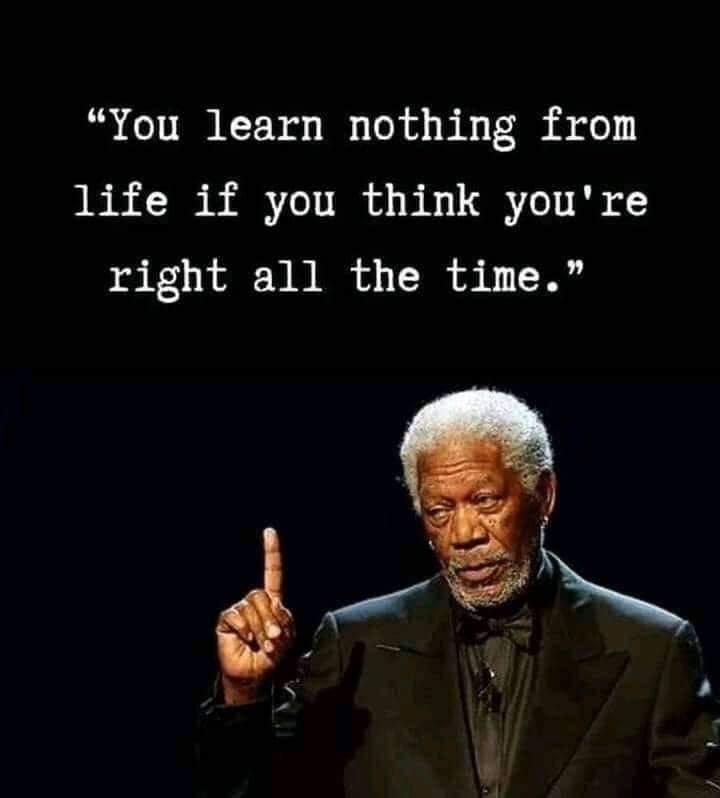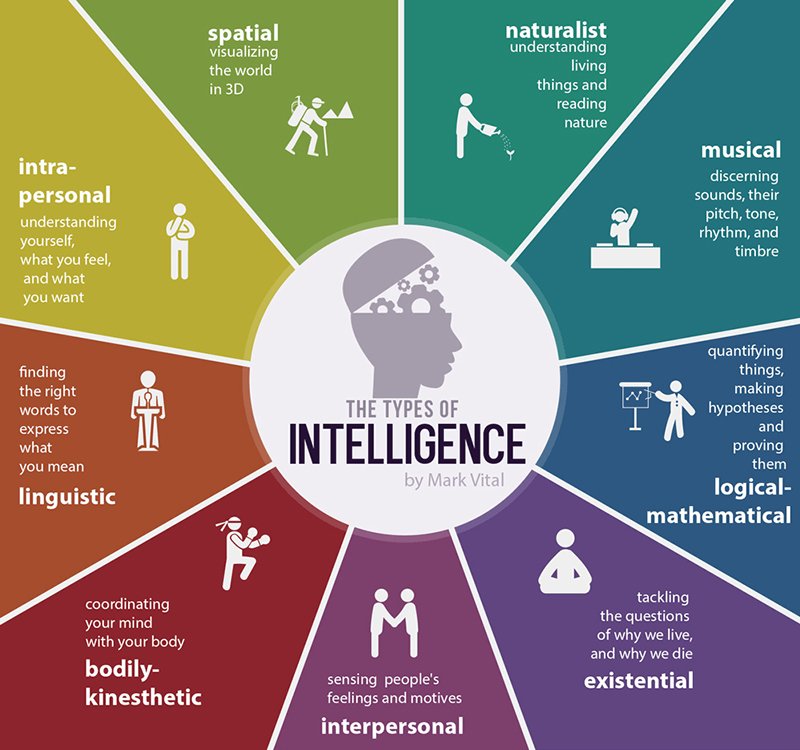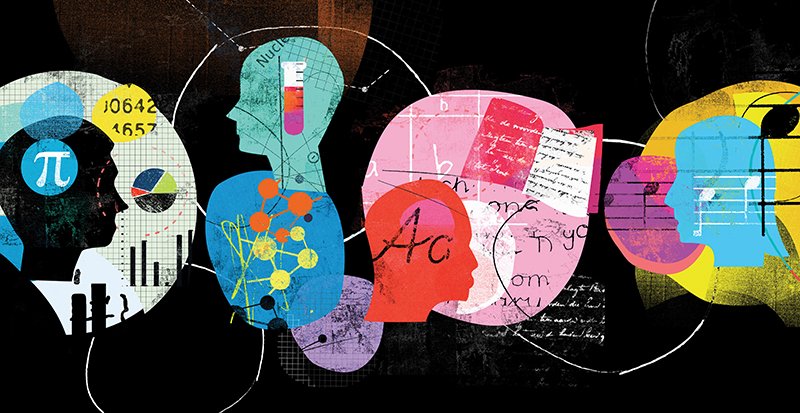““We live in a country in which words are mostly used to cover the sleeper not to wake him up.””
Learning from mistakes
As a human being, no one is immune from making mistakes. I think that learning from your mistakes is one thing, but putting what you've learned into practice is another.
What was I trying to do?
What went wrong?
When did it go wrong?
Why did it go wrong?
““We must learn and grow from our past failures, disappointments and painful experiences. Rest your goals and priorities and move forward. Start today by untying the knots that are limiting you.””
It's a long game
Research has shown that by simply providing information doesn't necessarily lead to behavioural change. I think while knowledge is valuable, changing behaviour often requires more than just information as human behaviour is complex, influenced by various factors beyond mere awareness. Effective behaviour change often involves a combination of factors for example, motivation, context, emotional connections, support systems, and practical tools or strategies.
“A large part of economic success is based on trust, in other words, do people trust you to fulfil your promises. ”
Conscious behaviours
Sustainability has evolved from being merely a business differentiator to an indispensable requirement for operations. Today, it serves as a license to operate rather than just a selling point. Environmental, social, and governance (ESG) criteria have become pivotal benchmarks for socially conscious investors when considering potential investments. I think where significant investments flow, others will inevitably follow suit. For small and medium enterprises (SMEs) in the consumer sector, prioritising sustainability isn't just ethical; it's increasingly strategic. Aligning with ESG principles can significantly enhance the chances of a successful sale and improve valuation, given the growing importance placed on sustainability by investors.
Don't get left behind
Over time, the nature of work has evolved through distinct phases. In the past, during the "Muscles" era, physical labour and manual skills held paramount importance. This period, exemplified by the Industrial Revolution and earlier agricultural societies, demanded physical strength and endurance for jobs that revolved around labour-intensive tasks in agriculture, manufacturing, and construction. Nowadays we are in the "Brain" phase, marked by the Information Age and technological advancements, knowledge work, problem-solving, creativity, and intellectual skills take centre stage. The contemporary workforce increasingly values cognitive abilities such as analysis, programming, design, and management, emphasising the significance of education and specialised skills. And in the future, we will enter the "Heart" phase where there will be a shift towards a greater emphasis on emotional intelligence, empathy, interpersonal skills, and values. I think as automation and artificial intelligence progress, it is likely that roles requiring human connection, understanding, and compassion will become more prominent, particularly in fields like healthcare, counselling, relationship management, and social support.
Social cognition
Alexander Todorov, psychologist at Princeton University is known for his research on social cognition and the psychology of first impressions. He has conducted studies that suggest people make snap judgments about trustworthiness in a very short amount of time, often within a tenth of a second, or even less. These rapid judgments are based on facial cues, body language, and other nonverbal signals. Todorov's research has shown that once we make these initial snap judgments, we tend to stick with them and use subsequent information to confirm or support our initial impressions, rather than revising them. I think this phenomenon is related to the concept of confirmation bias, where individuals tend to seek out and interpret information in a way that confirms their pre-existing beliefs or judgments. Remember that these quick judgments are not always accurate, and people can make mistakes in assessing trustworthiness based on minimal information. Todorov's work highlights the importance of being aware of these cognitive biases and being open to revising our judgments when presented with new and more reliable information.
The Learning Pyramid
The Learning Pyramid is framework that identifies the seven methods of learning, and the effectiveness of each method in terms of knowledge retention. In the illustration you can see that the lower effectiveness percentages are assigned to the passive learning methods like lectures and reading, while the significantly higher percentages are attributed to active learning methods such as group discussions and hands-on practice. These percentages were borne from extensive research by the National Training Laboratories Institute.
Dual process
Dual process thinking is a psychological concept that describes two distinct modes of cognitive processing, in other words, how humans process information and make decisions. Daniel Kahneman wrote in his best selling book, “Thinking, Fast and Slow” about System 1 and System 2 thinking.
System 1:
This is often referred to as the "fast" or "automatic" thinking system. It involves quick, intuitive, and often emotional responses. System 1 thinking doesn't require conscious effort and is responsible for making rapid judgments and decisions based on instinct and previous experiences.System 2:
This is the "slow" or "deliberative" thinking system. It involves analytical, rational, and logical thinking. System 2 thinking requires conscious effort and is used for more complex decision-making, problem-solving, and critical thinking.
Food for thought
Expand your mind (Pt-2)
Expand your mind (Pt.)
I'm not particularly keen on discussions about strengths and weaknesses without considering the context. Instead of viewing ourselves in terms of strengths and weaknesses, I think it's more accurate to see our traits and attributes as unique characteristics. In the appropriate circumstances, these qualities can transform into strengths, while in unsuitable environments, they might appear as weaknesses. It's crucial to understand our true selves and seek environments where our specific traits can be utilised to our advantage.
““Don’t ask people how clever they are, instead ask them how are they clever.””
How do we differentiate?
Image c/o The NY Times
Control is a major human addiction, and thinking we have control by keeping everything in our heads is deceiving. When we combine money and psychology then we’ll begin to understand that there is more to a rich life than just numbers in a spreadsheet. During my study of human behaviour and psychology, I became fixated on this question: "Why do we know what we should do but still don't do it?" I think that regardless of our backgrounds, we can lead a fulfilling life. While a higher income can be a significant aid, similar to improving fitness, we all have the potential to enhance our lives starting from where we are now.
Time waits for no one
How can we use our time in a way that makes our lives meaningful?
Ancient philosophers were obsessed with this very important question of how to use our time in a way that makes our lives meaningful. Modern time management has moved away from its philosophical roots, and only focuses on tips, tricks, and techniques to get more things done faster, more productively and efficiently. I think it's important to delve deeper into the philosophical roots of this concept to gain a broader perspective on the subject by asking the following questions:
· Why do we have to manage time?
· How precious is your time?
· Contact me via e-mail and let me know what do you think about time.
Horse metaphor
c/o The New York Times
Horses possess acute sensitivity and are swift to respond to your energy. To illustrate this concept, I use a metaphor of a horse and its rider. In this metaphor, the horse represents your emotional self - the raw animal energy, the hormones that elicit anger or excitement, and so on. On the other hand, the rider symbolises your rational self - your prefrontal cortex, your executive decision-making processes that employ logical reasoning to achieve your goals.
““Horses jump over obstacles and Macbeth’s ambition will propel him to clear the obstacle of Duncan. However, the word also has other suggestions, which Macbeth realises. Ambition is something of a problem – it may help the rider clear an obstacle, but it may also make the rider go down.””
To do lists
I think that there are three types of tasks on your to-do list: have to, want to, and should do.
· Tasks you have to do pay the bills.
· Tasks you want to do feed your soul.
· Tasks you think you should do drain your energy.
A key to avoiding burnout is putting should do tasks on the back burner.
What I perceive is really out there
Affirmations without discipline is the beginning of delusion. Character is the ability to follow through on a resolution after the enthusiasm of which the resolution was made has passed. The truth will set you free to correct old errors in judgement and will help you to set up new and easier disciplines to turn wrong into right. To turn lack into prosperity and turn skepticism into faith. To turn wrong into right we must speak the truth because only the truth will set us free, I mean, free to correct errors in judgement.
We all have unique challenges, whether it’s family or personal problems, financial issues, or business problems, we all have them at one stage or another. Errors in judgement are subtle and usually don’t show their results immediately. The formula for failure is a few errors in judgement repeated every day on a continuous basis. When you continue to repeat your errors in judgment over a period then you’ll be way off course.
““Men can be divided into two groups: One that goes ahead and achieves something and one that comes after and criticises.””
The looking-glass self concept
A lot of what we experience in the world today is challenge because of how we see ourselves. According to sociologist Charles Horton Cooley, individuals develop their concept of self by observing how they are perceived by others, a concept Cooley coined as the “looking-glass self.” I agree that behavior and self esteem are dictated by a person's predictions of how they’ll be perceived by others. In other words, we live in a perception of a perception of ourselves, for example, if I think that you think that I am smart, then I am smart. And in contrast, if I think that you think that I am dumb, then I think that I am dumb.
The challenge is we are basing what we think about ourselves on what we think someone thinks of us. And the greatest challenge with this is how do you have any idea if what you think someone thinks about you is even true. This is where identity struggles, we start pursuing things in life because we think other people value them. Go to the root of the issue, it’s easy to say just take two of these a day or maybe you just need to do this, but when you look at it from the root perspective we have look at where our challenges arise.
““The challenge today is I’m not what I think I am. I’m not what you think I am. I am what I think you think I am.””
Ideas and imagination
Everyone has great ideas and the better your vocabulary the better you can share ideas that are meaningful. Imagination is the first thing we must cultivate to manifest anything in our life. All ideas start with imagination, and I think all our joy has its origin in the imagination. And when we take the first step, those ideas can become reality with the proper execution strategy.
““Imagination is more important than knowledge. For knowledge is limited to all we now know and understand, while imagination embraces the entire world, and all there ever will be to know and understand.” ”
Who am I to judge?
According to Medium truly intelligent people and are naturally curious. They can't get enough of learning; they chase knowledge and genuinely enjoy learning new skills. They often learn new things and new skills just out of curiosity, even when they know they don't need those skills for their career or for any other purpose.
Here’s my concise list of what smart people do:
1. Change their minds often
2. Use simple language
3. Admit when they are wrong
4. Ask for help when they are stuck
5. Ask better questions
6. Are self-aware
7. Are comfortable with uncertainty
8. Value soft skills
9. Talk less and say more
To improve is to change
c/o Getty Images
Knowledge does not come by naturally, you will have to go through a systematic training program as this is vital for ensuring a happy and successful life. In our everyday lives we can change and transform ourselves through training. I think that no matter what activity or practice we are pursuing, there isn’t anything that isn’t made easier through constant familiarity and training. Therefore, we should consider education as a very important factor for ensuring a successful and happy life.
“The world as we have created it is a process of our thinking. It cannot be changed without changing our thinking.”





















